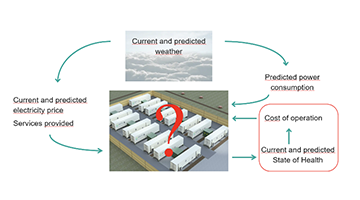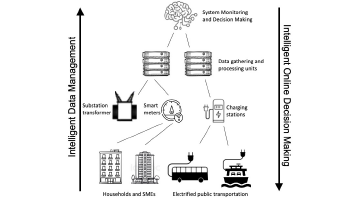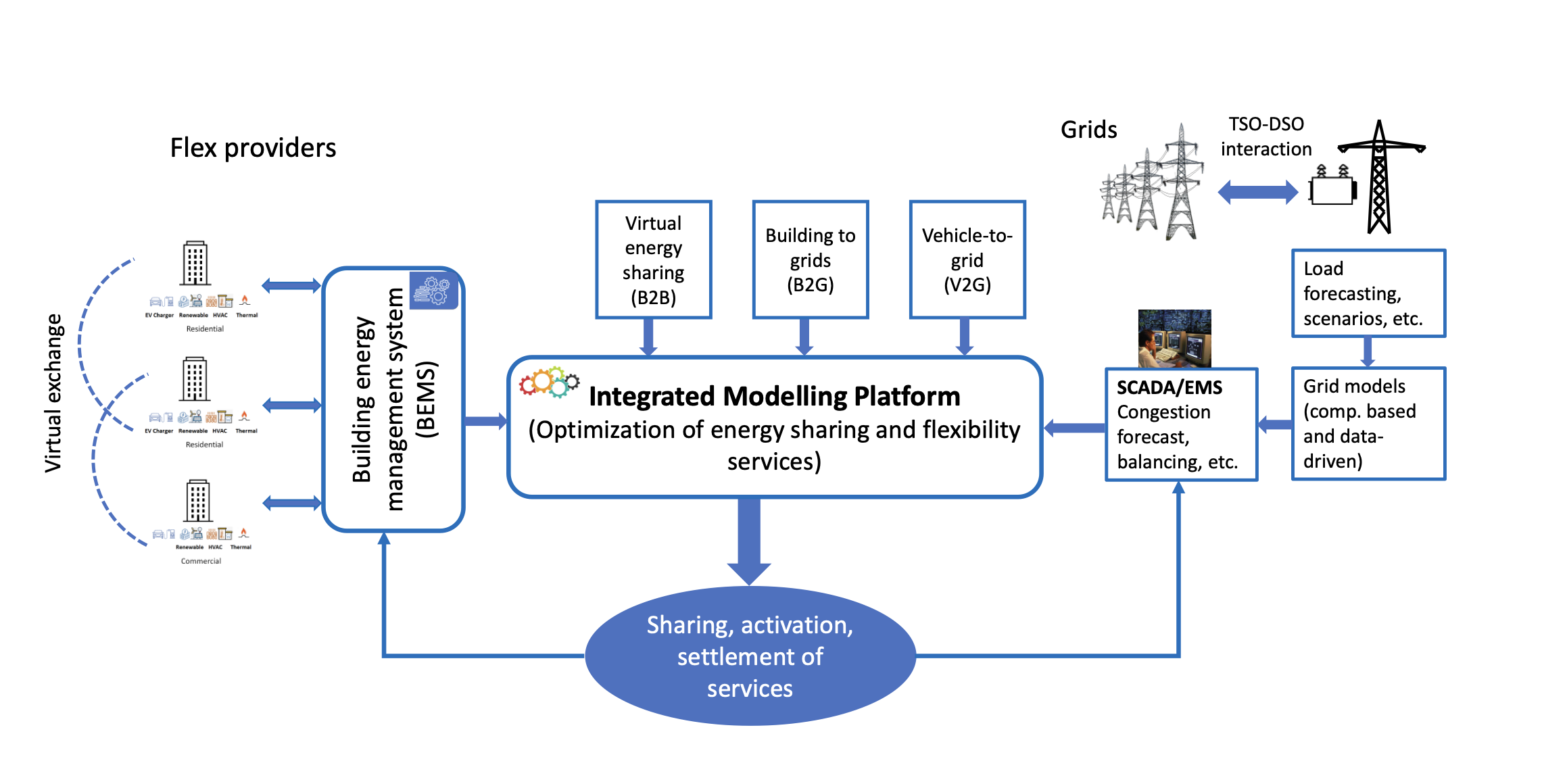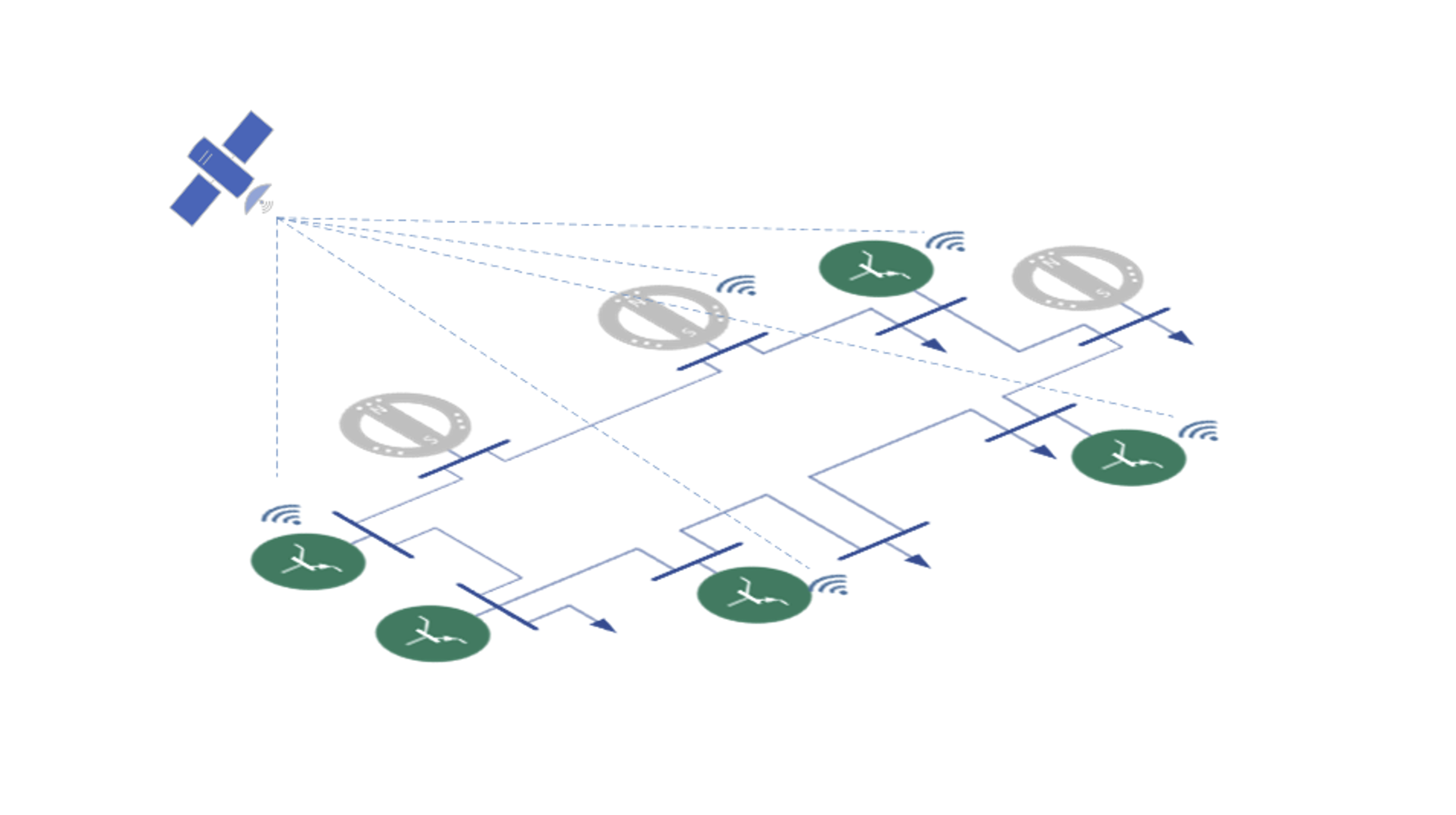Intelligent energihantering
Forsknings- och innovationsområde 3
De centrala aktiviteterna för Intelligent energihantering är mot en holistisk analys, koordinering och styrning av elproduktion, lagring och användarenheter anslutna till elsystem.
Det övergripande målet är att uppnå en robust energibalans över alla tidskalor och ge tillräcklig lindring vid olika situationer där den faktiska belastningen och elproduktionen avviker från det förutsedda, samtidigt som övergripande kostnader och behov av investeringar minimeras.
Forskningsområdet kommer att utforska hur man effektivt kan samla in, behandla och distribuera tillgängliga data med hjälp av innovativa anslutningslösningar och hur man utformar nya metoder för maskininlärning och styrmetoder för att uppnå målet.
Genom en kombination av distribuerade mätningar, kommunikation och styrning av energihanteringen blir det möjligt att bygga upp ett energitnätverk som ger önskvärd robusthet och resiliens . Samtidigt utnyttjas flexibilitet som ges av elproduktion, lagringsenheter och slutanvändare på ett optimalt sätt. Forskningen i detta område kommer att baseras på modeller, avgränsningar, nätverkskonfigurationer och systemkrav som utvecklats i Systemområdet.
Leds av: Professor Tomas McKelvey, Chalmers tekniska högskola
Forskningsprojekt
Projektbeskrivningarna är endast tillgängliga på engelska.
-
 Optimal usage and properties of 2nd life batteries for energy storage
Optimal usage and properties of 2nd life batteries for energy storageSecond life batteries are batteries that have ended usage in their first application but are in good enough condition to allow a second application. With the expected electrification of the transport sector, there will be very large quantities of such 2nd life batteries of highly different degree of ageing, properties and expected remaining lifetime.
Read more -
 TANDEM: InTelligent Energy DAta MaNagement and Online DEcision Making
TANDEM: InTelligent Energy DAta MaNagement and Online DEcision MakingThe electrification of transportation and industry challenges utilities and grid owners as energy demand rises faster than grid capacity can expand. To address this, TANDEM focuses on enhancing flexibility in energy distribution through efficient big data handling and processing.
Read more -
 Modelling platform for Building-to-Building-to-Grid services
Modelling platform for Building-to-Building-to-Grid servicesBuildings are becoming increasingly active with massive integration of solar photovoltaic (PV) panels, electric vehicle (EV) chargers, battery energy storage, heat-pumps, etc., and could potentially contribute to addressing the challenges. This project will enable buildings to share energy between buildings within a community and to provide flexibility to support the grids.
Read more -
 Storage and flexibility for enhancement of grid capacity
Storage and flexibility for enhancement of grid capacityThe reduction of CO2 emissions motivates the use of renewable energy sources like wind and solar power, which are dependent on weather conditions and thus variable in time. Electricity energy production must always equal consumption at every instant. This project aims to technologies to mitigate energy imbalances due to renewable energy sources.
Read more -
 Synchronized grid-forming systems
Synchronized grid-forming systemsThe aim of this project is to propose and investigate control solutions for grid-connected converters to favor large integration of renewables in the power systems. In particular, the focus is on the development of control strategies that allow enhancement of system’s stability and flexibility in power-electronic dominated grid, by controlling the instantaneous energy flow between selected generating units through bi-directional communication links.
Read more